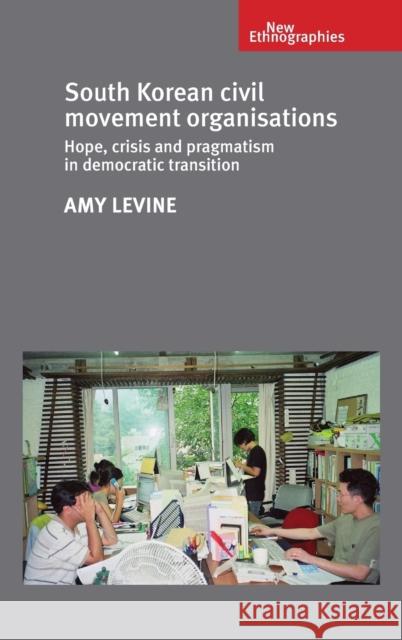South Korean Civil Movement Organisations: Hope, Crisis and Pragmatism in Democratic Transition » książka
South Korean Civil Movement Organisations: Hope, Crisis and Pragmatism in Democratic Transition
ISBN-13: 9780719090493 / Angielski / Twarda / 2016 / 176 str.
This is a unique ethnography of South Korean politics and civil society, specifically of some of the key non-governmental and non-profit organisations and think-tanks in Seoul around Roh Moo Hyun's tumultuous presidency (2003-8). Roh evokes comparisons to Tony Blair, Barack Obama, Kim Dae Jung and many others, yet this is the first English language book that comprehensively covers his era of presidency. The entangled hopes, crises and commitments to pragmatism that characterised Roh's rise and fall are explored through the lens of the civil movement organisations that came before Roh, worked with his administration and have continued after Roh's dramatic suicide in 2009. The ethnography considers the methodological, epistemological, theoretical and ethical dimensions of the civil movement organisations and was informed by over two years of intensive fieldwork and more than twelve years of study of South Korean social life. The themes that emerged - hope, crisis, pragmatism, collaboration, sacrifice, social design and innovation, agency - resonate with both classic and newer ethnographies about the Middle East, Asia, Africa, Europe and the Americas. South Korean civil movement organisations builds upon and uniquely contributes to the social science legacy of pragmatism through its consideration of the seventeenth- and eighteenth-century Korean practical study (silhak) movement, its engagement with mundane and highly theoretical concepts such as hyeonjang and how that legacy is being retold and reshaped in Korean law and politics by figures such as Won Soon Park. This engaging volume will appeal to both students and lecturers in Asian studies, anthropology, sociology, international law and politics.











